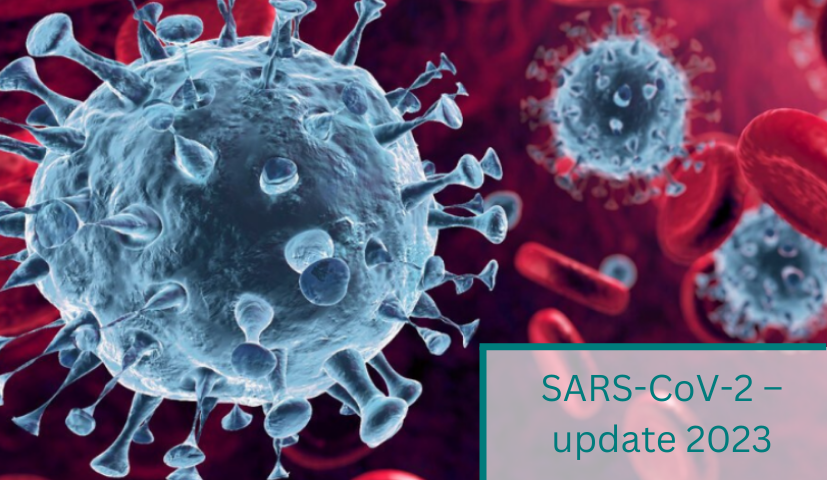
02 Nov. 2023 SARS-CoV-2 – update 2023
SARS-CoV-2 – update 2023
With the beginning of the autumn/winter season 2023/2024, increasing cases of SARS-CoV-2 diseases are reported worldwide. Thus, the RKI (Robert Koch Institute) records in their current weekly report of October 2023 a 20% share of COVID-19 diseases.
In an article from the National Institutes of Health (https://www.nih.gov/news-events/news-releases/sars-cov-2-infects-coronary-arteries-increases-plaque-inflammation), the authors highlight the recent study from the New York School of Medicine. Due to their findings, it could be explained why people who recovered from a SARS-CoV-2 infection may have increased risk to develop cardiovascular diseases and stroke upon one year of infection. The researchers think that SARS-CoV-2 can directly infect arterial cells and possibly increase inflammation in existing plaque (SARS-CoV-2 infection triggers pro-atherogenic inflammatory responses in human coronary vessels/https://doi.org/10.1038/s44161-023-00336-5)
TCD for early detection and therapy determination
With the help of TCD screening, the risk of vascular diseases can be diagnosed in SARS-CoV-2 patients and a targeted decision about their therapy and treatment can be made.
If the coronavirus causes vascular inflammation (vasculitis), the inflammatory reaction leads to vascular narrowing with relevant cerebral blood flow velocities (CBFV) changes. An intracranial routine examination can assist in diagnosis of vasculitis by following proximal cerebral vascular abnormalities.
Emboli detection and a TCD-based PFO test can indicate an increased risk of thrombosis and stroke in SARS-CoV-2 patients. Therefore, a therapy can be determined more precisely and the patient can be protected against possible consequential damage with appropriate measures.
Since inflammation of the vascular system has a serious influence on the blood flow velocities, the course of the disease and therapy of a patient affected by COVID-19 can be controlled and optimized using the Neuromonitoring Analysis (NMA)
References
SARS-CoV-2 infects coronary arteries, increases plaque inflammation
https://www.nih.gov/news-events/news-releases/sars-cov-2-infects-coronary-arteries-increases-plaque-inflammation
Eberhardt, N., et al.
